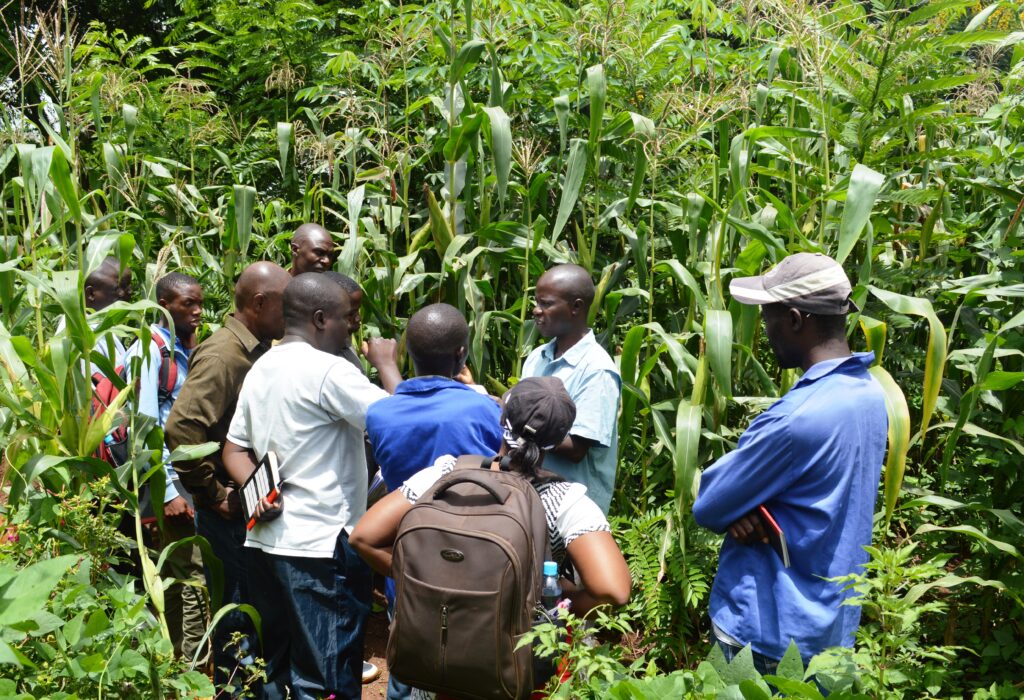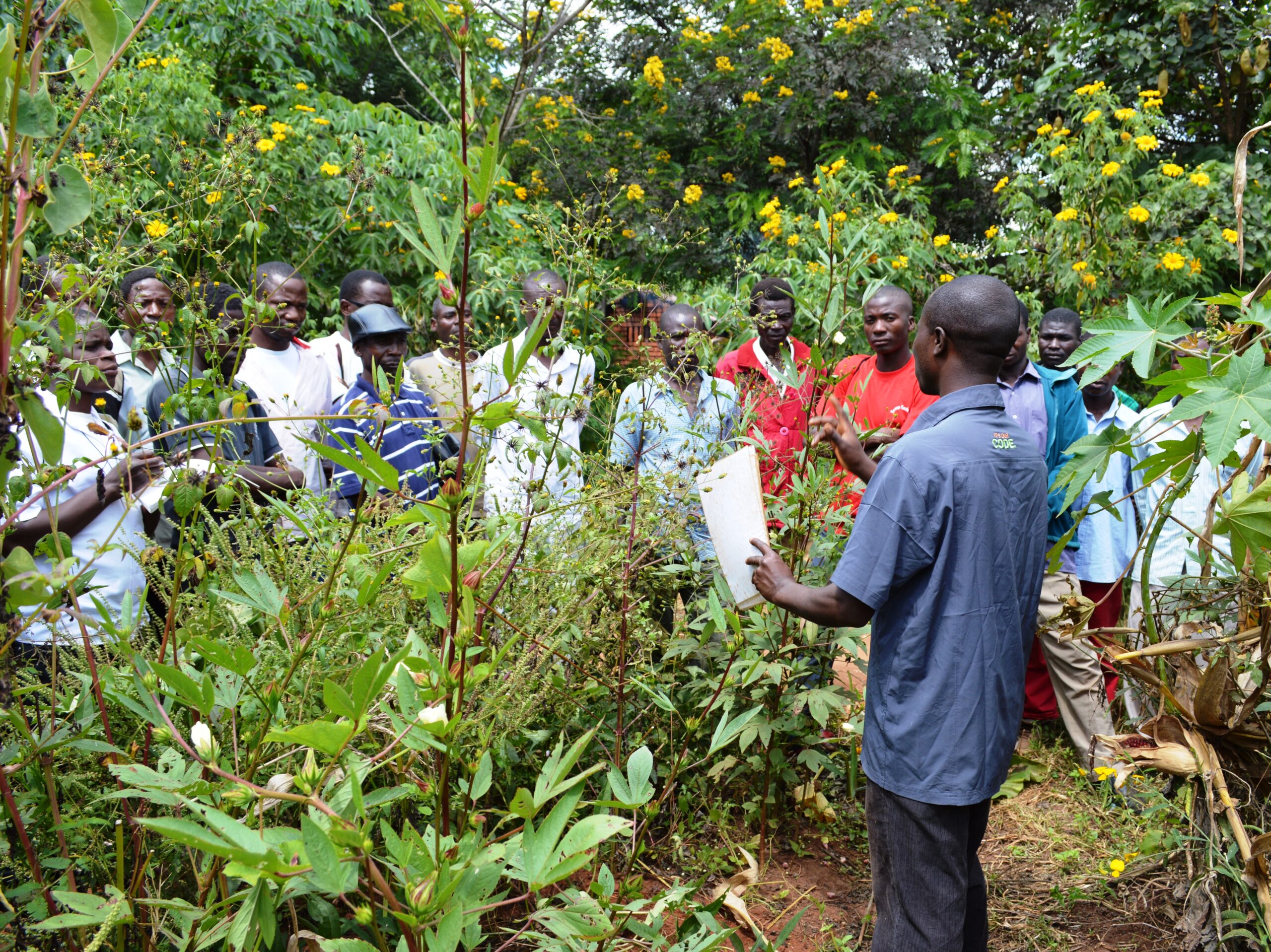The livelihoods of Africa’s 500 million small-scale farmers depend on seed for grains, legumes, and vegetables. Seed is also at the heart of the numerous cultures in Africa.
“Seed is under siege,” says Rachel Wynberg, a professor at the Department of Environmental and Geographical Science at the University of Cape Town (UCT). Rachel is the editor of African Perspectives on Agroecology: Why farmer-led seed and knowledge systems matter, a collection of research essays on the theme published earlier this year.
“As the world’s food and agricultural systems become increasingly industrialised, homogenised, and privatised, seed has become something of a poster child for the struggles involved.”
These struggles include the “deep injustices” that have emerged through years of colonisation and exploitation. This includes policies and laws that have for decades supported the interests of commercial farmers and multinational seed and agrochemical companies, often at severe cost to the environment, climate, and small-scale farmers. It also includes the so-called Green Revolution that promotes genetic modification as a shortcut to higher yields and more profits.
On the other hand, little has been documented about the resilience of local seed systems and innovative approaches adopted by small-scale farmers across the continent to retain agrobiodiversity, while pursuing agroecological approaches to farming that not only produce sufficient food but also eliminate harmful inputs.
Social movements, long silent in Africa, are emerging as a powerful force for change, alongside the range of NGOs that provide support to farmers at different levels.

Stacia and Kristof Nordin. (Source: Supplied)
Never-Ending Foods Malawi
The Malawi Indigenous Food Revival Group is one such group that is promoting the use of organically produced seed of indigenous African grain, legume, and vegetable plants.
The group includes Kristof Nordin, the founder of Never-Ending Foods in Malawi and his wife Stacia, a permaculture expert. The group also include Jurie van der Walt, a researcher on indigenous and ancient African food plants, Andrew Goodman, Megan Banda, and Lana Howard from Green Growth Development, Afshan Omar, owner of Area 25 Health Centre in Malawi, and Clement Taonani from Nthawi Farms in Malawi.
Their objective is to assist and enable small-scale farmers to grow and multiply their own seeds and to distribute these seeds among each other for cultivation.
Permaculture
“Permaculture, which relies heavily on traditional knowledge, is at the basis of what we are trying to do,” says Jurie. “It integrates ecological principles, sustainable agriculture, and ethical considerations to create harmonious and resilient systems for living and food production. It emphasises working with nature rather than against it, promoting biodiversity, soil health, water conservation, and self-sufficiency.”
Jurie believes one of the biggest problems African communities are facing today is not the lack of food, but food that has very low levels of nutrition. Traditional food plants can address this nutrition deficit.
“Permaculture aims to create sustainable human habitats that meet human needs while enhancing ecological health and community well-being. Seeds grown by small-scale farmers and exchanged among each other form part of this ecological approach.”
Research on permaculture conducted in Malawi demonstrates that small-scale farmers grow on average three times more crops and more crop varieties per food group than conventional farmers. They spend less on inputs, eat a wider diversity of food groups, have increased food security, and benefit from permaculture because they use practices that address household constraints and expand their adaptive capacity.
GMOs
Some African farmers may be hesitant to adopt genetically manipulated seeds. “The debate around seeds for agricultural produce, particularly regarding genetically modified organisms (GMOs), is complex and touches upon various economic, environmental, social, and ethical considerations,” explains Jurie.
GMOs are organisms whose genetic material has been altered in a way that does not occur naturally through mating or natural recombination. In agriculture, this often involves the insertion of genes from one organism (such as a bacterium, or another plant species) into the DNA of a crop plant to confer desired traits, such as resistance to pests, herbicides, or environmental stresses.
Supporters of GMOs argue that these seeds offer several potential benefits, including increased crop yields, reduced dependence on chemical pesticides and fertilisers, enhanced nutritional content, and improved resistance to pests, diseases, and adverse environmental conditions. These traits could contribute to food security, economic growth, and environmental sustainability.
Concerns
However, there are concerns about the use of GMOs, including possible environmental risks, such as the unintended spread of modified genes to wild relatives, the development of resistant pests and weeds, and the loss of biodiversity.
There are also potential health risks associated with consuming GMOs as long-term effects are still unknown despite scientific consensus holding that GMOs currently on the market are safe to eat.
At the heart of the conflict is access to seed and control over its ownership.
“One of the major concerns among African farmers is the issue of intellectual property rights and dependency on seed companies,” says Jurie.
Many GMO seeds are patented, and farmers have to repurchase seeds each planting season rather than saving and replanting traditional seeds. This can lead to increased costs and a loss of traditional farming practices.
While the dust has not yet settled on GMOs, New Genomic Techniques (NGTs) are touted to be the new answer to faster development of seeds. A ‘genetically modified organism’ (GMO) may be a plant, an animal, or a microorganism whose genetic make-up has been modified using biotechnology, typically by transplanting genes that code for desirable traits from one species into another. NGTs are used to edit the existing genes of an organism in a highly targeted way and without inserting any foreign genetic material.
Jurie quote Stacia on this: “We do a lot of reading on genetic engineering and have not found that humans are making wise decisions on its use in agriculture. Often it is used to make plants withstand chemical sprays. Diverse organic agriculture in harmony with nature is a much better option.”

Peter Kaniye from Never Ending Foods explaining the importance of mixed-cropped systems to a group of agricultural extension officers. (Source: Supplied)
Alternative approaches
Jurie believes there are alternative natural approaches such as agroecology, organic farming, and participatory plant breeding. These approaches prioritise ecological sustainability, biodiversity conservation, farmer autonomy, and social equity.
“There are two types of seed systems, namely farmers’ and commodity seed systems. Farmers’ seed systems, defined by the continuous renewal of biodiversity and the free distribution of seeds and knowledge among peoples, make food systems more resilient against climate change, pests, and pathogens.
“This is because the more diverse a food system and the more dynamic the global ecosystem, the higher the chance that any one species has a particular trait that enables it to adapt to a changing environment, and, in turn, pass that trait along.”
Silent revolution
In a recent discussion paper, Kristof summarises what the agricultural debate is about: “The global implementation of sustainable and agroecological solutions is sometimes referred to as a ‘silent revolution’, due to the fact that it is quietly but steadily growing in both size and popularity.
“Governments continue to invest in large-scale subsidies to agribusiness approaches, while organic farmers are required to pay out of their own pockets to certify the fact that they are farming in an eco-friendly manner.”
High-input approaches to food production are promoted as ‘progress and development’, while sustainable solutions are ignored or shunned. “But we are finding, as this revolution grows, that individuals, families, and entire communities are joining together to reap the benefits of working towards the creation of an ecologically sustainable future.”
Ecologically sustainable future
The goal of creating a sustainable and resilient future in agriculture means implementing the solutions offered by permaculture: planting trees, harvesting water, mulching the soil, diversifying crops, protecting wildlife, saving seeds, designing green buildings, harnessing renewable energy, sharing indigenous knowledge, and marketing sustainable products.
Contact Jurie van der Walt at jurievdw@mweb.co.za.
Source references
Wynberg, R. (Ed) (2024) African Perspectives on Agroecology: Why farmer-led seed and knowledge systems matter, Practical Action Publishing Ltd 10_3362_9781780447445 (3).pdf
Koku, O.P., Lenzi, D. (2024) Euroviews. In farming, genomic techniques can’t afford a repeat of disastrous GMO rejection. Euronews https://www.euronews.com/green/2024/02/16/in-farming-genomic-techniques-cant-afford-a-repeat-of-disastrous-gmo-rejection
New Genomic Techniques: what are they and how can they improve our food systems? (2023) EUFIC









